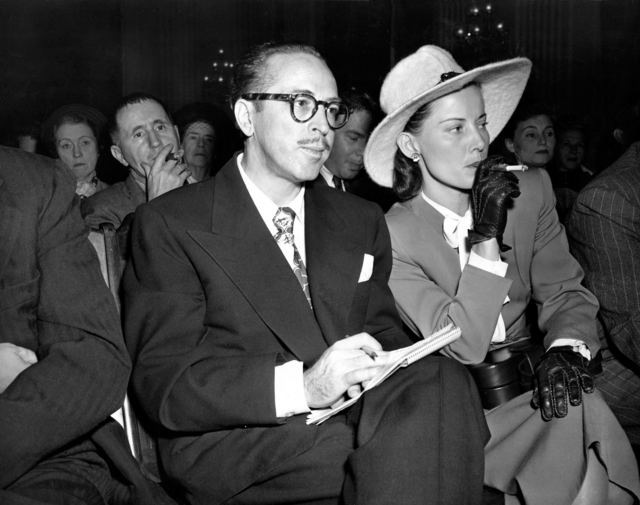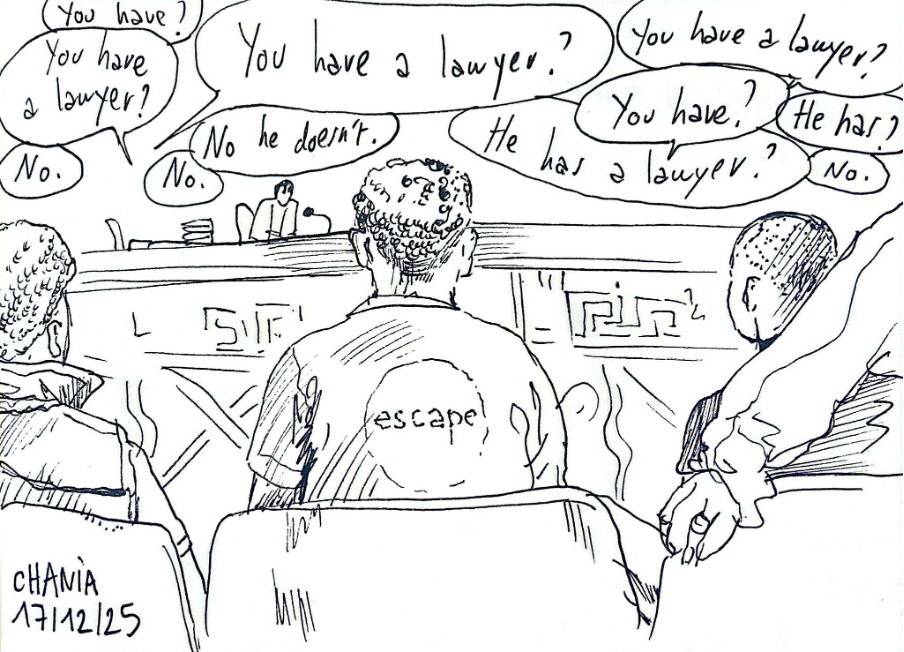The United States ended the Second World War as the world’s strongest power, both economically and militarily, and was determined to maintain that dominance. Abroad, the “Truman Doctrine” allowed the Soviet Union to control Eastern Europe while Communist uprisings were crushed in Greece. At home, McCarthyism denied public-sector jobs to anyone suspected of being a Communist. Most famously, writers and directors in the Hollywood Ten were jailed and blacklisted from working in film for 13 years.
The Hollywood Ten were originally the Hollywood Nineteen, but only eleven people were called to trial. The eleventh was the left-wing German playwright Bertolt Brecht, who had fled from Hitler and eventually settled in Los Angeles in 1941. He wrote the screenplay for just one film, Hangmen Also Die. On 30 October 1947, Brecht appeared before the House Un-American Activities Committee (HUAC), the congressional body responsible for implementing McCarthyism. (You can see a recording of part of the hearing here.)
Although Brecht’s appearance before HUAC makes for compelling—often hilarious—theatre, it is also an example of how not to resist repression. Brecht did not confront McCarthy directly. Instead, his answers were riddled with the phrase “I don’t remember.” While his colleagues in the Hollywood Ten refused to testify, Brecht insisted that he had never been a member of the Communist Party in any country. Whether or not that was true is beside the point. Answering questions his colleagues had refused to address amounted to a form of scabbing.
In fact, Brecht’s individualistic resistance was typical of the protagonists in many of his plays—from Mother Courage to Galileo to Schweik in the Second World War. Each portrays persecuted individuals outwitting the authorities. Brecht later said he felt compelled to testify because he was not a US citizen, but it seems more likely that he chose the strategy with which he was most familiar. As he noted in his testimony, Brecht refrained from political activity during his six years in the United States.
We shouldn’t be too hard on Brecht. Many writers and workers in other industries lost their jobs in the McCarthy purges, and some were jailed. Given the balance of forces in 1950s America, Brecht’s choice was between self-preservation and persecution. The day after his testimony, he flew to East Germany, where the government had promised him his own theatre, the Berliner Ensemble. Despite some misgivings about East German “socialism,” he remained there until his death in 1956.
For Berliners who are interested in Brecht and McCarthy, I will be engaging with the subject more in my talk: Spartacus – the film that broke the McCarthy blacklist? on Sunday 2nd November at the Unframe festival.




